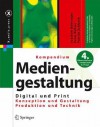Wedding Wipeout by Jacob M. Appel - Review

I won this Book as a First Read in a Giveaway on Booklikes, which won't influence my reading experience or Review of it.
Attention - Might contain Minor Spoilers
Written in First-person narrative.
We have a Main Cast of 14 Characters.
The Rabbi Kappelmacher and his assistant Rabbi Steinnmetz. The victim, its immediate and extended family. Two of the family's lawyer. The family physician. And the neighbour of the Victim.
Almost right at the start of the book we find out, that an elder unmarried Spinster of jewish extraction has died.
A former Rabbi, now turned lawyer, visits the Rabbi to ask for his help about the circumstances of the death of one of his clients, aforementioned Spinster.
The Rabbi, known for his interest in puzzles, his quick wit and 'rabbinic reasoning', accepts the challenge to find out if it was in fact an age and health related death or, as the lawyer suggests, a murder.
In the course of the book the Rabbi drags his assistant Rabbi around the Town all the while smoking cigars. Impersonates, among other things, an FBI Agent and almost single-handedly solves the Case, thanks to his often cited Rabbinic Reasoning.
Alas, not before another murder happens in the family.
It is written in informal style and a clear language. (not taking the yiddish words into account)
The characters were all written in a well balanced way.
There was the young, money-lusting woman. A vain, old hag as a relative and an ignorant, white racist. Not to mention... there were homosexual characters, too, which was a surprise to me.
The lack of pining, two-dimensional people was refreshing. (Otherwise you find them somehow a lot in Murder/Mystery stories)
I enjoyed reading the book, except for two things.
I was not happy about the way Rabbi Kappelmacher was behaving towards Rabbi Steinmetz. It felt at times mean, even a bit obnoxious and too condescending coming from an old man of faith, who should behave wiser than that.
Often I felt let down, too, by Kappelmacher as a reader. I didn't mind it per se, whenever he left Steinmetz to think over every step for himself, or advised him to try using his rabbinic reasoning.
But since the reader relies on Steinmetz's knowledge, it makes it hard to follow the story and thereby takes away some of the reading fun.















